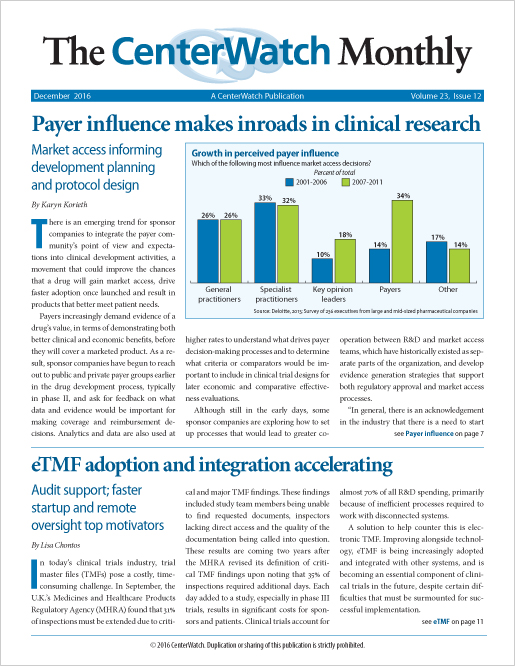December 2016 – The CenterWatch Monthly : PDF
Product Details
Payer influence makes inroads in clinical research
There is an emerging trend for sponsor companies to integrate the payer community’s point of view and expectations into clinical development activities, a movement that could improve the chances that a drug will gain market access, drive faster adoption once launched and result in products that better meet patient needs.
eTMF adoption and integration accelerating
In today’s clinical trials industry, trial master files (TMFs) pose a costly, time-consuming challenge. In September, the U.K.’s Medicines and Healthcare Products Regulatory Agency (MHRA) found that 31% of inspections must be extended due to critical and major TMF findings. These findings included study team members being unable to find requested documents, inspectors lacking direct access and the quality of the documentation being called into question. These results are coming two years after the MHRA revised its definition of critical TMF findings upon noting that 35% of inspections required additional days. Each day added to a study, especially in phase III trials, results in significant costs for sponsors and patients. Clinical trials account for almost 70% of all R&D spending, primarily because of inefficient processes required to work with disconnected systems.
Also in this issue:
- Why we need to redefine the “team” in rare disease trials
- Why is there such inefficiency in site selection?
- Regulatory Update
- Month in Review
- FDA Actions
- Study Lead Opportunities
- New Drugs in the Pipeline
